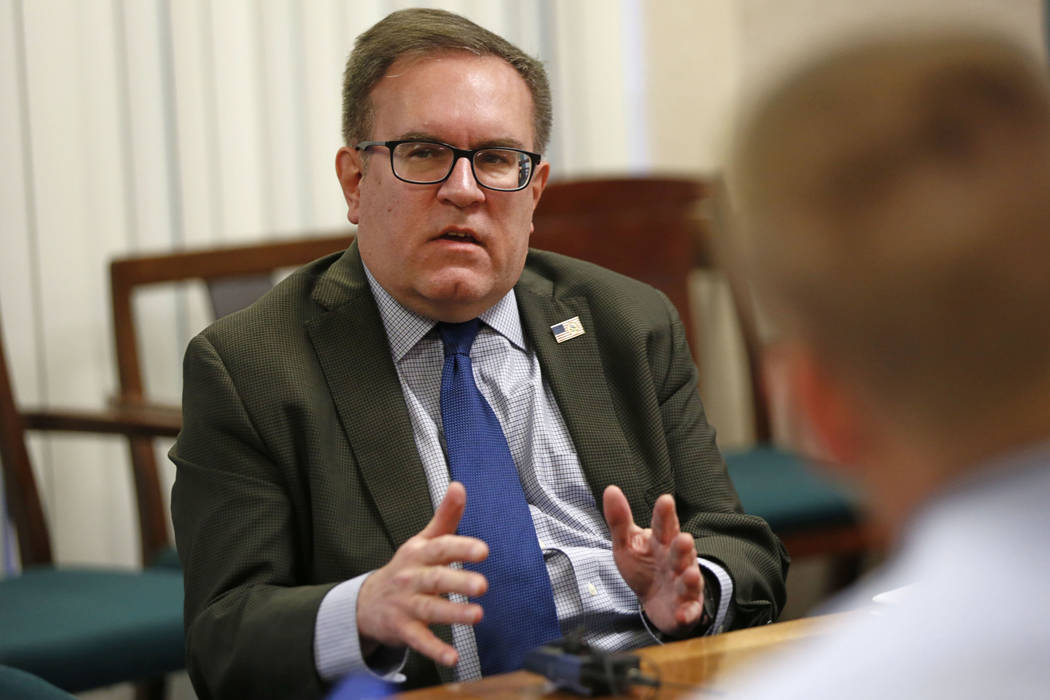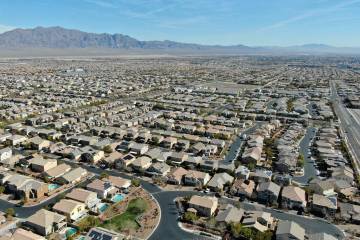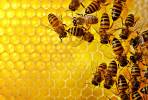EDITORIAL: EPA administrator details sensible water rules, efforts to curb pollution
There are people who bellyache about problems and people who put their heads down looking for solutions. Put EPA administrator Andrew Wheeler in the latter category.
Late last month, Mr. Wheeler came to Las Vegas to announce a new rule defining “waters of the United States.” Under the Obama administration, the EPA tried to define the term so broadly that they had to clarify that it didn’t include puddles. The Obama administration’s EPA used this cudgel to stifle businesses and farmers in a host of ways. One Wyoming farmer received a $37,500 a day fine for the supposed crime of building a stock pond on his own property.
Under the Trump administration, the EPA repealed the Obama-era rule. A federal District Court judge ruled in 2019 that it was too broad anyway. This new rule defines “waters of the United States” more conventionally. It includes seas, navigable waters, tributaries to those waters, lakes and wetlands adjacent to those other waters. It doesn’t include things such as features that hold water only after rain, converted cropland and groundwater.
“What this will do is simplify the permitting process,” Mr. Wheeler said in an editorial board with the Review-Journal. “We exempt, for example, for the first time specifically, ditches on farms.”
There’s another benefit, too.
“We want to have the definition so clear that if someone is inspecting a farm in Indiana or Nevada or Alabama that they’re getting the same reading of the rule,” Mr. Wheeler said. “That there’s consistency across the country. That is what was really lacking.”
This fight over definitions is symptomatic of a larger problem. For decades, Congress has outsourced its lawmaking authority to bureaucracies, such as the EPA. Even though the new EPA definition makes sense, it’d be better for Congress to provide clarity in this and other statutes.
Mr. Wheeler expects environmental groups to sue immediately. Too bad. If they weren’t so intent on litigation, they’d find some common ground with Mr. Wheeler on areas such as reducing food waste and cleaning up plastic pollution.
Mr. Wheeler noted that the marine plastic problem comes primarily from six countries in Asia. You don’t fix that by banning straws in the United States. That’s why the EPA is running pilot programs in Peru, Jamaica and Panama “to help those countries keep plastic debris from getting into the ocean.” Mr. Wheeler wants to combine what the United States learns there with efforts by other countries to find solutions for the Asian polluters.
Bravo. Just like the new “waters of the United States” rule, that sounds a lot like the common sense that’s too often missing from federal agencies.





























